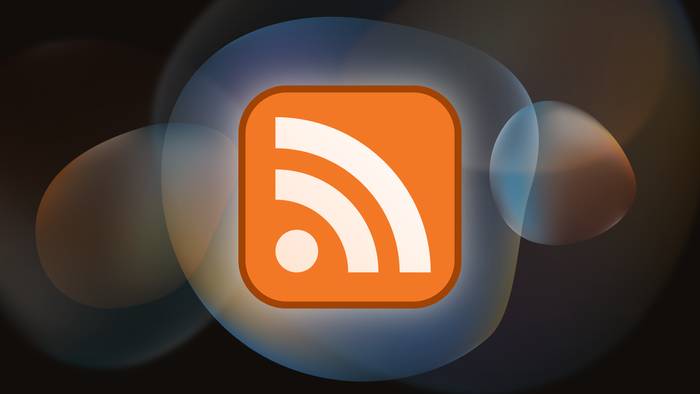
RSS and web feeds are taking back your Internet
The Internet used to be a free willed, more independent place. If you wanted to check information about a topic, you had to actively search for it on Google, Yahoo, or any other search engine around at the time.
Nowadays, everything seems to have been turned the other way around: Everything boils down to websites and apps selecting that information for you, “recommending” you things to watch or read. Sure, it’s convenient, but up to a point.
Overly relying on this method (and companies will design to ensure you become addicted to being recommended stuff) has a lot of negative effects on you and everyone around, which I will get onto in future posts.
For now, I want to show you something that can give you back a bit of independence over what you want to see. Something that has been around for quite a while, but it’s still relevant to this day.
Web feeds: What are they and why should you care?
To put it simply, a web feed is basically like a YouTube subscription. You add one of these feeds into a feed reader app and it will automatically grab the latest posts from that web feed as they come, and put them all together in one neat place. It’s also called a news aggregator because the app keeps stockpiling the news or posts you’re subscribed to.
These reader apps can have other features like keeping track of which ones you’ve read, organizing posts by topic, tagging posts to read later, among other things.
But more importantly, web feeds are designed in such a way that the websites that provide these feeds can’t manipulate its contents depending on who’s accessing it; unlike recommendations made by an “algorithm”, the content is the same for everyone.
This implies no website can get your personal information for their benefits, so it’s excellent for those worried about privacy (which is something that has become increasingly concerning in some countries). And you have total control over what you want to see: If you don’t like something, just unsubscribe from the feed by removing it from the app, and their associated posts will go away!
Another benefit is that since it’s you handles the content you’re seeing, it won’t be especially suited to retain you in the same website for hours, although the effects can vary significantly depending on the content and the website you’re watching it from. Still, this is something that right now I am very concerned about and regard very highly.
You may have heard about RSS or Atom feeds. They are simply two different types of web feeds. Websites that provide feeds will usually provide either one or the other, but newsreader apps normally support both types because they are very similar and widely used. For example, this blog offers an Atom feed compatible with Feedly-based apps for the Modern blog, and a RSS feed for the Legacy version blog that can be used with newsreaders for older systems.
They are also very lightweight, and will often just have text and images, nothing fancier than that. Videos are usually filtered out or will not play, on the other hand, the posts will have their ads stripped out (though the newsreader could slap ads of their own in their app). But if you feel like it’s too little for you, nearly all feed readers will provide you a link to display the full post in your browser.
Some websites will purposefully give you just a small summary of the article to encourage you to visit the full page, and use their telemetry and tracking tools on you when you do so.
This blog provides a web feed like this, but your privacy won’t be compromised when seeing the full version because I specifically designed this blog to avoid as much telemetry from other companies as I could.

Many newsreaders also support converting posts from social media like YouTube or Reddit, into a web feed that you can read just like any regular one. Just put the link to the user profile from the social platform you want to be kept notified and you’ll get their latest posts as they come, no algorithms nor recommendations involved. Just beware that the conversion is not always perfect and that you might have to open the post in a browser to see it correctly.
A double-edged sword
With web feeds, it’s ultimately up to you what you want to see, and what you’d rather ignore. If used without critical thinking, you could end up building your own echo chamber, that is, you could end up following feeds that reflect and reinforce your beliefs, and might end up radicalizing yourself.
Granted, social media nowadays builds their own echo chambers for you so that you can stay in their platforms as long as possible. Web feeds don’t do this; it’s what you choose to read, so use web feeds responsibly.
For managing my own feeds, I use these guidelines:
- Check the authors and their sources: Even the most popular and reputable websites that you might be subscribed to can have very nasty authors, or make claims that can be widely disputed.
- Seek information from as many points of view as possible: An enduring task, considering how polarizing media is becoming nowadays.
- Keep your hobbies into account: This will keep your hobbies active in your brain while at the same time keep you informed about the things you like to do, with little yet need to be accounted for risk of becoming polarized.
- Be open to new things! Local newspapers are excellent to check for new things to do, or get in touch about what’s happening where you live.
Why didn’t web feeds caught on?
The thing is that they used to be a big deal in the 2000s, but many attribute the downfall of web feeds to the shutdown of Google Reader, Alphabet’s solution for news aggregators. But I personally believe it was a catalyst more than its cause.
My main theory is that it came down mostly to its design, which was mostly against the coming of the age of Big Data and personalized marketing. By design, news aggregators request updates from the web feed on their own and don’t leverage anything from the browser or browsers you may have installed.
Feed readers generally won’t send login information or anything about the person who is requesting it, and the feed is handled on the 3rd party newsreader, the site delivering the web feed won’t get any precious user usage data, and they can’t put any middleware in between to ask for a login or something of the sort. Again, this is also by design.
If you’re seeing a website for free, then you’re paying by being their product.
But to the website maintainer’s eyes, web feeds allow you to bypass this and essentially become a freeloader.

So it’s no surprise why Google and other big tech companies whose business model relies a lot on collecting user data started removing (and sometimes even discouraging using) web feeds. Although Google added an RSS compatible solution, it was on Google Chrome, so they had control over the usage data, and apparently they removed shortly afterwards on desktop platforms.
However, RSS is here to stay, with many blogs and journalist websites still supporting it for those who remain loyal to that technology, and in the world of AI generated content, being able to control what you’re reading and watching has become more relevant than ever.


